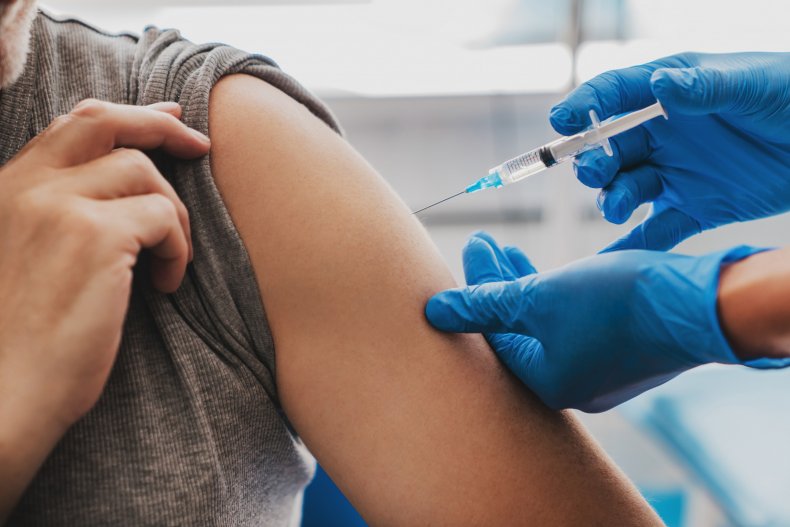Flu Vaccine May Protect Against COVID Complications, Hospitalization: Study
The flu vaccine may prevent people with COVID from getting seriously ill, according to research. However, experts stress it is still important for people to get the COVID vaccine shot, despite their findings.
COVID patients analyzed in the study who were vaccinated against the flu were less likely to develop conditions including stroke, sepsis, and deep vein thrombosis (DVT).
They also had a lower chance of being admitted to an intensive care unit (ICU), or visiting the emergency department.
Those who did not have the flu jab were 20 percent more likely to end up in an ICU, 58 percent more likely to visit an emergency room, and had a 45 percent higher chance of developing sepsis.
In addition, they were 58 percent more likely to have a stroke, and 40 percent more likely to have DVT.
Researchers looked at anonymized data on patients diagnosed with COVID, taken from electronic medical records from 56 health care organizations around the world, including the U.S. and the U.K.
There were 74,754 participants in total, split into those who did or did not have the flu vaccine two weeks to six months before testing positive for COVID.
To try to make the comparisons as fair as possible, researchers matched the participants for severe COVID risk factors, such as their age, gender, whether they smoked, and if they had conditions such as diabetes, obesity, and chronic obstructive pulmonary disease.
The findings, which have not been peer-reviewed, were presented at the online European Congress of Clinical Microbiology and Infectious Diseases.
Commenting on the findings, professor Peter Openshaw, a member of the U.K. government's New and Emerging Respiratory Virus Threats Advisory Group (Nervtag), who was not involved in the research, told The Guardian: "It could be that the flu vaccine stimulates the immune system non-specifically and has that benefit, but you always wonder whether these associations are causal, or whether there's a common factor, like social deprivation which might explain why they go hand in hand... People who manage to get a flu vaccine may have better health in other ways."
He added: "The best way to protect yourself from COVID is to get a COVID vaccine."
Co-author Susan Taghioff of the University of Miami Miller School of Medicine said in a statement the flu vaccine may benefit those who are hesitant to get the COVID vaccine.
"Despite this, the influenza vaccine is by no means a replacement for the COVID-19 vaccine and we advocate for everyone to receive their COVID-19 vaccine if able to."
She went on: "Regardless of the degree of protection afforded by the influenza vaccine against adverse outcomes associated with COVID-19, simply being able to conserve global healthcare resources by keeping the number of influenza cases under control is reason enough to champion continued efforts to promote influenza vaccination."
Dr. Devinder Singh, co-author and a professor of plastic surgery at the University of Miami Miller School of Medicine, told Newsweek that although the mechanism behind the link is unknown, the flu vaccine stimulates one arm of the immune system, which in turn eases inflammation in the body in a protective way.
However, Singh added: "It's very important to emphasize that we absolutely recommend the COVID-19 vaccine, and in no way suggest the flu vaccine is a substitute to the proper COVID-19 vaccine."
If the link is proven, the researchers hope this could help regions of the world where COVID vaccines are not readily available.
Singh said in a statement: "This finding is particularly significant because the pandemic is straining resources in many parts of the world.
"Therefore, our research—if validated by prospective randomized clinical trials—has the potential to reduce the worldwide burden of disease."
Singh added: "Only a small fraction of the world has been fully vaccinated against COVID-19 to date and, with all the devastation that has occurred due to the pandemic, the global community still needs to find solutions to reduce morbidity and mortality."


